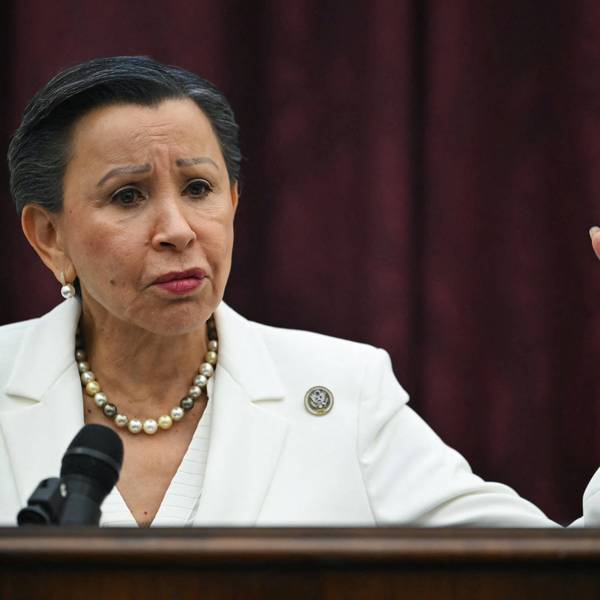The U.S. State Department is investigating allegations that the Honduran military is targeting environmental activists on a "kill list," the Guardian reported Friday.
A whistleblower first told the Guardian last month that such a list existed, and also alleged that the murdered environmental activist Berta Caceres was on it before she was shot and killed in her sleep in early March.
This is the State Department's first public response to the "hit list" allegations.
James Nealon, the U.S. ambassador to Honduras, told the Guardian, "We take allegations of human rights abuses with the utmost seriousness. We always take immediate action to ensure the security and safety of people where there is a credible threat."
The newspaper reports, "The State Department insists that it sticks closely to the letter and the spirit of the Leahy law, the legislation first implemented in 1997 that bans U.S. State Department and Department of Defense support to foreign military units charged with human rights violations. The U.S. embassy in Tegucigalpa employs staff under the Leahy law who vet all individuals or units earmarked for possible training, weeding out officials accused of gross abuses."
Nealon added, "We are not trainers and enablers of 'hit squads.' We're just the opposite--we are working hard to strengthen the systems in Honduras that protect human rights defenders."
Yet since a U.S.-backed military coup in 2009, Honduras has become one of the most dangerous places in the world for activists, according to UK-based rights group Global Witness.
Indeed, news of the department's investigation emerged a day after another member of Caceres' organization of Indigenous land defenders was killed in Honduras.
In protest, several members of Congress published an op-ed in the Guardian calling to an end to U.S. military aid to Honduras on the same day the State Department announced its investigation.
"As long as the United States funds Honduran security forces without demanding justice for those threatened, tortured and killed, we have blood on our hands. It's time to suspend all police and military aid to Honduras," the op-ed reads.
Representatives John James Conyers, Jr. (D-Mich.), Keith Ellison (D-Minn.), Hank Johnson (D-Ga.), Marcy Kaptur (D-Ohio), Jan Schakowsky (D-Ill.), and Jose E. Serrano (D-N.Y.) authored the condemnation of U.S. policy toward the current regime in Honduras.
It's "possible that U.S.-trained forces were involved" in the death of Caceres, the group writes.
"Despite this dangerous track record," the representatives continue, "the United States continues to pour money into Honduran security forces. The U.S. has already allocated at least $18m to Honduran police and military for 2016. Barack Obama's 2017 budget request calls for increased funding for the Honduran police and military. In addition, the Inter-American Development Bank has lent $60m to the Honduran police, with U.S. approval."
The House members claim to have written to the secretary of state to protest U.S. aid to Honduran security forces since 2010--when Hillary Clinton served in that role:
In multiple letters to the secretary of state, stretching back to 2010, we have joined with our colleagues in the House to call for an immediate suspension of security aid to Honduras. Enough is enough--it's past time to suspend the aid and instruct the U.S. Treasury department to vote no on all loans from multilateral development banks to security forces in Honduras.
The six House Democrats are pushing for passage of the Berta Caceres Human Rights in Honduras Act (HR 5474), which would suspend military aid to Honduras "and prohibit international loans providing for security assistance[...] from being dispersed unless Honduras makes serious inroads to addressing blatant human rights violations by police and military forces."
"Once justice is restored and impunity for human rights abuses ends, we'll reconsider," the representatives conclude.



